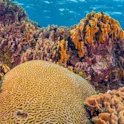
Climate action
19 Jul 2021
Three key habitat-building corals face worrying future due to climate crisis
Three key habitat-building corals face worrying future due to climate crisis, shows new study in Frontiers in Marine Science

Climate action
19 Jul 2021
Three key habitat-building corals face worrying future due to climate crisis, shows new study in Frontiers in Marine Science
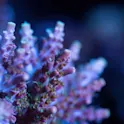
Featured news
15 Jul 2021
First observations of coral cells and free-living algae physically interacting: Frontiers in Marine Science
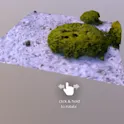
Featured news
21 Apr 2021
Citizen scientists can play video game to help research on coral reefs: Frontiers in Marine Science
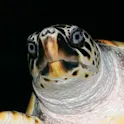
Life sciences
09 Apr 2021
Charting long-distance migration of loggerhead turtles: Frontiers in Marine Science
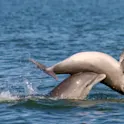
Featured news
18 Mar 2021
Marine ecosystems are endangered by an increasing number of coastal development projects. A new study shows for the first time that bottlenose dolphins may adapt to anthropogenic disturbance under some circumstances. The findings draw attention to the need for proper management of coastal construction sites. By Suzanna Burgelman, Frontiers Science writer Social interaction between two bottlenose dolphins. Image: Ann Waver Bottlenose dolphins learn to cope with coastal construction activities. That is the conclusion of a study published in Frontiers in Marine Science. The study is the first to provide a longitudinal perspective on the cumulative impacts of coastal construction. Dolphins adapted to the construction of a bridge by establishing feeding locations outside of the construction zone, and by shifting the timings of behaviors to a time in the day when construction activities were minimized. Coastal development practices negatively impact marine wildlife Marine coastal development is characterized by unsustainable practices. Coastal development exposes 47% of coastal marine mammal species and 51% of core marine mammal habitats to extensive anthropogenic disturbance. Human activities along coastlines and in marine habitats can lead to pollution, vessel strikes, entanglement, by-catch, and debris ingestion, which disturb and harm marine wildlife. Read original article Download original article (pdf) […]
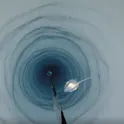
Earth science
15 Feb 2021
Prior research has suggested that the watery depths below the Antarctic ice shelves are too cold and nutrient poor to sustain much life. But a new study from British Antarctic Survey reveals the discovery of a colony of sponges and other animals attached to a boulder on the sea floor – challenging researchers’ understanding about the existence of life in extreme environments. British Antarctic survey camera travelling down the 900-meter-long bore hole in the Filchner-Ronne ice shelf. (marine creature pictured is unrelated to the discovery) CREDIT: Dr Huw Griffiths/British Antarctic Survey By K.E.D Coan, science writer/British Antarctic Survey Far underneath the ice shelves of the Antarctic, there’s more life than expected, finds a recent study in the journal Frontiers in Marine Science. During an exploratory survey, researchers drilled through 900 meters of ice in the Filchner-Ronne Ice Shelf, situated on the south eastern Weddell Sea. At a distance of 260km away from the open ocean, under complete darkness and with temperatures of -2.2°C, very few animals have ever been observed in these conditions. But this study is the first to discover the existence of stationary animals – similar to sponges and potentially several previously unknown species – attached to a boulder […]
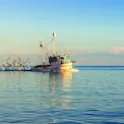
Featured news
05 Feb 2021
Study uses size distribution of catch to identify hot spots for reproduction of fish and crustaceans in Mediterranean and Eastern Atlantic: Frontiers in Marine Science

Featured news
08 Jan 2021
How do sea urchin cope with climate change? Frontiers in Marine Science
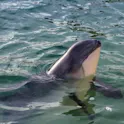
Environment
07 Jan 2021
Numbers of Phocoena phocoena harbor porpoises, a sentinal species, have declined over the past two decades due to human activities: Frontiers in Marine Science
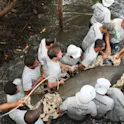
Life sciences
06 Jan 2021
Low genetic diversity in manatees off South America raises alarm for conservation actions: Frontiers in Marine Science
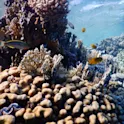
Environment
15 Dec 2020
Scientists from Stony Brook warn of the risk of massive oil spill in Red Sea: Frontiers in Marine Science
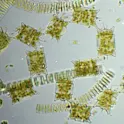
Featured news
19 Nov 2020
The results of synthesis study suggest that primary production in some regions of the ocean may be an order of magnitude greater than originally predicted: Frontiers in Marine Science
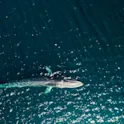
Featured news
29 Oct 2020
Fin whales vary their song structure and pick up new songs from other whale groups, study suggests: Frontiers in Marine Science

Featured news
24 Sep 2020
Are these marine protists the first known virus-eating organisms? Frontiers in Ecology in Marine Science
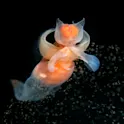
Life sciences
07 Sep 2020
How marine snails “fly” through the water: Frontiers in Marine Science
Get the latest research updates, subscribe to our newsletter